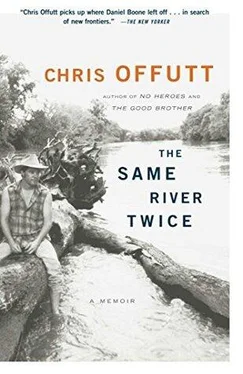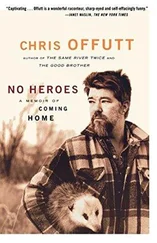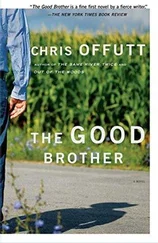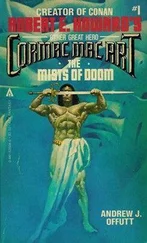There was a mechanized element to his movements, as with a movie actor playing an android. I realized that the front of his head was short-circuiting and he was caught in a synaptic repetition, like faulty wiring that blows the same fuse each time you flick the light switch. I took his arm and said, “Come on, let’s go.”
Immediately the circuitry righted itself.
“Thank you,” he said. “I’m going for coffee, for coffee.”
Dusting Jamaica Plain were various artists living illegally in warehouses without plumbing. Shadrack had a studio a few blocks from the rooming house, and used my shower on Tuesday or Thursday. He had a few stops around town, all charted on a pocket calendar from last year. The true dates didn’t matter since the days of the week never changed. On a particularly lonesome day I called him at noon, rousting him from sleep. He grunted twice and whined a litany of woe. One of his girlfriends might be pregnant, his paintings were terrible, and his bowels had failed him three days running. Believing his troubles more genuine than mine, I was momentarily cheered.
An hour later Shadrack arrived for a shower. He griped about the dullness of my razor, and demanded a pair of socks. He was angry that I had not washed the only towel that I owned.
“It’s been three months,” he said.
“Bring your own, Shad.”
“How can you live like that?”
“I don’t get as dirty as you.”
“Good point,” he said. “But I have to stay clean for the women.”
“The young one, the rich one, or the one who might be pregnant?”
He stared at me, insulted. His correction came low and firm, “They are all rich.”
He dressed and left. Shadrack’s dates were invariably white and blond, the angular descendants of northern Europe. He didn’t mind their eating disorders, their stabbing hipbones, their preoccupation with the clothes of other women. When I suggested variety, he refused on the grounds that his mother had dark hair and eyes. As soon as the right trust fund appeared, he would catapult from a heatless warehouse to a skylit studio in SoHo. Until then, he’d make do with my shower.
Under Shadrack’s influence, I hit upon my most ingenious artistic thought — to write a poem about a specific object, then transcribe it onto the object itself. The first priority was to find suitable junk. I spent hours wandering in alleys, seeking industrial trash. My journal filled with entries about a planned gallery show of “found-object-poetry.” I jammed my room with detritus, but never quite got around to writing any poems.
One of the boarders left the rooming house, and Shadrack recommended a woman who worked at a bakery. She’d bring home free food, which I was to share with him as a finder’s fee. Diana was a three-hundred-pound, toothless native of Maine, my age and height, built like a sumo wrestler with silo thighs. She always wore a battered bicycle helmet with rearview mirrors like insect feelers. The day we met, she lacked front teeth. A bicycle hung carelessly over one immense shoulder.
“Hi, Chrith. My upper plate ith at the dentitht. Where can I keep my bike?”
“Anywhere’s fine. Nothing really matters here.”
“I know. That’th why I’m here. Thadrack thaid you’re a poet.”
“How’d you lose your teeth?”
“Knocked out in a poolroom.”
“Uh, yeah. Make yourself at home, Diana. I’ve got to do some serious writing.”
Safe in my room, I lay in bed and drank a finger’s width of bourbon, pleased that Shadrack considered me a poet. It was a sign that our friendship was solid, since I’d still written nothing. Wittgenstein suggested that the truly sacred was ineffable, that the unsaid was more important than the said. As proof, he renounced all of his teachings. I was trying to go him one step further, increase the purity of my eloquence by refusing to write at all, rather than merely abandoning the practice. Anyone could quit. It required real courage never to begin.
Every morning, Diana trudged from her room wearing a tattered red robe ripped at the seams to reveal acres of flesh. She bummed cigarette after cigarette. During childhood, she confided, the other kids slipped razor blades in apples and threw them at her.
“Diana,” I finally said. “Go put your plate in your mouth.”
She returned to fix a cup of Maine coffee. After filling a sock with beans, she smashed them with a pan and dropped the sock in boiling water. The resulting muck could float a bullet. The recipe was from her father, an alcoholic who beat his wife, children, and livestock when drunk. He died of multiple snakebite wounds after passing out in a nest. Diana was fourteen years old and weighed two-twenty. She told me she’d gained weight deliberately, hoping to make herself ugly enough to halt her father’s visits to her bedroom.
“I never told a man that before, Chris.”
“Uh, yeah,” I said. “I’m glad you trust me.”
She grabbed my shoulders and clubbed me in a hug that ripped her red robe further. One sleeve dangled like a hammock from shoulder to wrist. This rite of camaraderie cemented us enough for her lover to move in.
Young and attractive, Sophia endeared herself to me with her habitual breakfast of diced garlic mixed in plain yogurt. She explained that any foulness in her body fled the garlic. Sophia was always chipper, never sick, and to my knowledge, was unbothered by vampires. Her passage through the hall left a vapor. One evening I came home to find Diana pacing a ragged circle in the kitchen, a fierce expression on her face. Sophia slumped in a chair.
“She got fired,” Sophia said.
“So what,” I said.
“She knocked her boss out first.”
“He made fun of my weight,” Diana said. “So I cold-cocked him.”
I rummaged my room, for a pint of Kentucky’s finest and passed it around. Diana knocked back a two-bubble drink.
“Thanks, Chris. I stayed until he came to. That’s when he fired me. I said I was sorry. He was too embarrassed to press charges.”
I invited Diana to battle an old boss from Salem, a beefy Frenchman who might last a couple of rounds. She refused because her invariable triumph won no friends.
“Men can fight and be buddies afterwards,” she explained, “But a woman who whips a man is always a bull dyke.”
“You’re no dyke,” Sophia slurred. “You’re a sweetie pie.”
Diana slapped me on the back.
“I’m a lucky buckaroo. This one thinks I’m special.”
“She’s just drunk.”
Diana laughed and laughed. I handed her the bottle. She finished it and dropped her fists to splayed knees.
“For a man,” she said, “you’re a good hombre.”
They staggered into their room. That night and thereafter, Sophia and Diana left their bedroom door open while making love, a gleeful concert that encased the house in guttural sound. One stuttered a banshee keen while the other snorted and moaned. The jamboree mounted to a dual crescendo of high screams before fading to a gurgle. Encores followed for hours. Night after night I felt a certain reverence for their endurance. They seemed completely uninhibited and free from the recuperative needs of a man. Though neither attracted me, I was jealous of their mutual delight.
Sophia refused to seek employment, claiming that she wouldn’t succumb to the patriarchal system. Diana took a job at a car wash. One afternoon Sophia asked if I’d ever had a homosexual experience. I shook my head, remembering men in New York who’d cruised me with such diligence that I’d begun to wonder if they recognized some latent quality that I didn’t know about. A kindly old man finally explained that men were simply more aggressive than women, that I should view male attention as nothing more than a compliment. “Do you look at women on the street?” he asked.
Читать дальше












